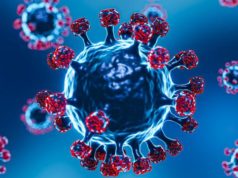[Written by Clinical Dietitian Sarah Williamson]
The last two years have made clear that not everything in the world of health is under our control. However, most of us are lucky enough to have a say in one important element, and that is what we eat. The food we put into our bodies directly affects the way that we feel and the way our body functions.
When it comes to food, Registered Dietitians are the ‘Gold Standard’ for providing nutrition advice. Sarah Williamson, Clinical Dietitian with the Bermuda Hospitals Board and President of the Bermuda Dietitians Association says, “Outside of dietitians, virtually anyone can call themselves a nutritionist and this can sometimes lead to confusion around our food choices. Despite a plethora of diet advice available to us, more of us are eating energy-dense, high-fat, high-sugar, and high-salt foods”.
Bermuda ranks third highest in the world for type 2 diabetes. In addition, 75% of adults are obese or overweight, and 50% have at least one chronic disease such as type 2 diabetes, kidney disease, high blood pressure, high cholesterol, or heart disease. Driven by the population’s substantial health concerns, approximately $11,300 per person each year was spent on health coverage in 2017/2018 before the pandemic, one of the highest in the world.
Now at its two-year mark in Bermuda, as we emerge from a global pandemic, the interruption of preventative and routine healthcare appointments will have long-term public health implications. Dietary guidelines are even more important. The Bermuda Dietitians Association has been celebrating National Nutrition Month throughout March, and based on the latest evidence has made suggestions for eating better and being healthier.
National Nutrition Month’s top tips for healthy eating:
- 1. Fruits and vegetables are packed with essential vitamins, minerals, and fiber that are vital for good health! Aim to eat 5-11 servings of a wide variety each day. One serving is about the size of your fist. Fresh, frozen, dried, and canned all count. 100% fruit or vegetable juice, and smoothies can count too! But remember ½ cup [about 5oz] counts as one serving no matter how much you drink, or how many varieties of ingredients, because the blending/juicing process removes most of the valuable fiber from the fruit and vegetables. Tips to help us eat more fruit and veg, and keep it affordable include buying in season, buying local produce [usually lasts for weeks instead of days], explore growing your own, or use frozen and canned varieties which can be cheaper than fresh, and store brands = savings.
- 2. Choose wholegrain varieties of starches if you can! Most of the goodness in grains is in the outer bran layer and germ of the seed so wholegrains can contain up to 75% more nutrients than refined white products! Wholegrains help reduce the risk of bowel cancer, lower blood pressure, maintain ‘friendly’ gut bacteria, and help keep us feeling fuller for longer. We should try to make half of our daily grain intake whole grains; by choosing multi-grain bread, wholewheat breakfast cereals, brown rice, brown macaroni, and wholewheat pasta it can be easier than you realize!
- 3. Try to choose less processed meats [luncheon meat, hot dogs] and red meats [beef, pork, lamb], and prioritize leaner options like poultry [chicken, turkey] and fish which are healthier alternatives. These foods are high in protein, which helps build and repair cells in our bodies. Our protein needs change across our life, but a sensible serving of protein is ¼ of your plate at each meal. To help reduce red and processed meat consumption, try having 1-2 meat-free days per week. Using plant-based protein products made from soya, tofu, or Quorn, means more fiber and less calories, which is associated with reduced risk of obesity, cardiovascular disease, type 2 diabetes, and some cancers.
- 4. Choose low-fat dairy foods or calcium-rich alternatives to make sure you get enough of the nutrients needed to keep muscles, bones, nerves, teeth, and vision healthy, and to even support normal immune functioning! You are more at risk of calcium deficiency if you are breastfeeding, have coeliac disease or osteoporosis, or you are past the menopause. Dairy products and their alternatives form part of a healthy balanced diet; choose lower fat and lower sugar options where possible. Try to include a calcium rich food/dairy source three times a day in or with meals and/or snacks. Many plant-based alternatives are fortified with calcium [they have extra calcium added to them]. It is important to check that the products you are buying contain added calcium as many organic products, for example, are not fortified.
- 5. 70% of our body is made up of water; therefore, it is essential we drink enough to keep our bodies in working order. Our urine should be a pale straw color or clear. Drinking water is the easiest way to get enough fluid. You can add sugar free flavoring drops or add slices of fruit to make it more interesting. Sip on water throughout the day, and place water on your work desk to remind you to drink regularly.
- 6. Excess fats, sugars, and sodium can affect our health! Unhealthy fats, added sugars and sodium are found mainly in processed foods, fried foods, cookies, chips, candy, baked goods, pastries, take-outs, ready meals, some white breads, sodas, condiments, and sweet desserts. Try to limit your intake of these foods because they are associated with heart disease, high cholesterol, and obesity.
- 7. If you drink alcohol, the risk of developing a range of illnesses, including heart disease and certain cancers, increases with any amount of alcohol you drink on a regular basis. Alcohol is high in calories and can contribute to weight gain. It also lacks most essential nutrients and vitamins so if alcohol is providing most of the calories in your diet then there is a risk of nutritional deficiencies. Aim to have several alcohol free days each week.
The COVID-19 pandemic has altered the daily lives of people across the country, causing many a lot of stress, sickness, and pain. Amidst these difficulties and changes, it is more important to maintain a healthy lifestyle. We need to take care of ourselves, and eating a healthy diet is a great way to do just that. Sarah Williamson says, “Eating well should focus on healthy additions rather than restrictions. If in doubt, bring it back to the basics and base most of your meals on fruits or vegetables, carbohydrates [wholegrain versions where possible], low-fat protein-rich foods and sources of unsaturated fat.” If you have been advised by your physician or dietitian to follow a particular diet, please continue to do so. You can learn more from Bermuda’s dietitians on Facebook @bermudadietitians or www.bermudadietitians.com where they have made their healthy eating guidelines available for download.











